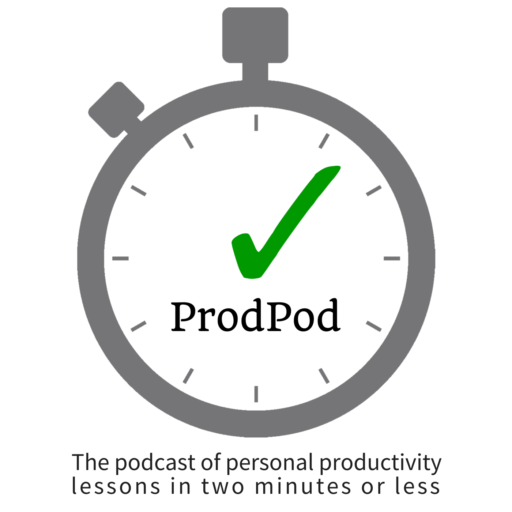Sometimes, it’s all in how you define an unproductive behavior that starts to build new, productive behaviors.
I’d like to invite everyone listening to the podcast to my new live, monthly Twitter conversation, Productivity Chat or prodchat. Please visit rsidneysmith.com/productivity/prodchat/ to learn more, and see how easy it is to join the conversation!
The first accepted definition is procrastination being a lack of motivation leading to non-action. The second common definition of procrastination is the putting off till tomorrow what you can do today. The third, lesser known and my personally-accepted definition, is the doing of lesser-priority activities instead of doing higher-priority activities. Therefore, procrastination is a supplanting of activities, delaying activities of higher importance as a by-product; not laziness, not lack of motivation, and not lacking in self-efficacy.
Normally I would say that asking yourself why you’re thinking a particular way would be the first step to conquering any unproductive behavior; however, this is an exception to that as I think you shouldn’t think one more minute about why you procrastinate and stop defining procrastination as a character trait. Banish the term “procrastinator” and the statement “I’m a procrastinator” from your vernacular. It’s a behavior and behaviors can change by building new, productive behaviors.
Heck, procrastination can be positive; for example, doing a high priority activity when the right energy, emotion or competence is not available can be detrimental. Doing the lower-priority activities during those times can be the best use of your time.
I’ll have many more episodes on conquering and finding balance with procrastination, and I wanted to set a good definition in place for the context of managing procrastination and, ultimately, your productivity.
